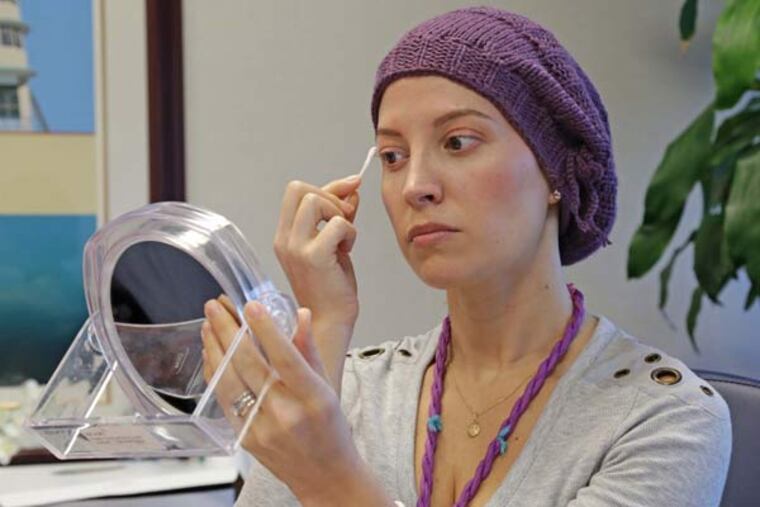Support groups and exercise help cancer survivors

MIAMI — Emma Rodriguez, a colon cancer survivor, recalls a time when she had to go through continuous infusion chemotherapy.
The 60-year-old Surfside, Fla., resident would arrive at the Sylvester Comprehensive Cancer Center at the University of Miami Miller School of Medicine and leave with a pump device that would infuse her chemotherapy over two days. She would then return to the hospital to get the pump removed. She did this every 15 days for six months.
"It was really rough," said Rodriguez, who had a very large tumor removed from her upper right colon and completed the chemotherapy in May 2013.
She was cleared of cancer, but the challenges did not end there. Like many cancer survivors, Rodriguez had new difficulties arise, from managing pain to building up her physical and emotional strength.
The Centers for Disease Control and Prevention reports that about one in every 20 adults in the U.S. has survived cancer, including nearly one-fifth of all people over 65. And the treatments they've received can cause varied, long-lasting effects like fatigue, constant pain, numbness, balance issues and cognitive issues. Then there are the emotional difficulties like guilt, depression and anxiety.
"I feel guilty even mentioning it, just because I know there are so many women out there who have it so much worse than I do and have suffered more than I have suffered," said Deborah Lesser, 63, a freelance writer who was diagnosed with Stage 2 breast cancer in 2014 and had a bilateral mastectomy.
To combat these issues, survivors incorporate various coping techniques, helped by hospital programs and support groups.
Memorial Healthcare System in Broward County offers an oncology rehabilitation services program called STAR, or Survivorship Training and Rehabilitation.
The program trains physicians, therapists, pharmacists, dieticians, social workers and other disciplines across Memorial hospitals to work together with patients on a personalized rehabilitation plan from the time they are diagnosed.
"Fatigue is one of the major complaints of cancer patients," said Dawn Broksch, the administrative director of rehab operations for STAR. "So we tell cancer patients to walk, do cardiovascular or endurance exercises. They look at you like you're crazy, but if you can convince them to go along with you, then they actually feel better and the fatigue actually decreases."
Other hospitals have programs aimed to assuage the emotional effects of cancer.
Mount Sinai Medical Center, in Miami Beach, hosts women's support groups, spa days and the Look Good, Feel Good program sponsored by the American Cancer Society. This program provides makeovers and makeup tips for women undergoing or having recently undergone cancer treatments.
"You're termed a survivor from the moment you're diagnosed," said Dr. Lisa Alpizar-Gonzalez, licensed clinical psychologist at Mount Sinai Medical Center. "So even though in essence survivorship is after treatment, we consider all our patients here survivors, so we have them celebrate with us just as we would anyone else."
Alexandra Phelan, 33, a breast cancer patient diagnosed in January, recently attended the program.
"Doctors and nurses always recommend support," said Phelan, who learned tips on how to work with her non-existent eyebrows and acne due to chemotherapy. "I didn't think I was ready or feeling comfortable. I wasn't sure if it was going to make me stronger or weaker. I was afraid of seeing people feel bad, but I am happy I am here."
Doctors and cancer survivors advise maintaining the healthiest lifestyle possible. Patients must continue getting check-ups, going to support groups, eating well and exercising.
"I tell my patients, remember that you're still a person," said Dr. Gladys Giron, associate medical director of Baptist Health Breast Center. "Sometimes they think they don't have to keep taking care of themselves."
For Rodriguez, her positive attitude gets her through the daily struggles of her post-cancer life.
"My life changed tremendously. I just go one day at a time," Rodriguez said. "If I get lemons, I make lemonade instead of complaining and thinking, 'Why me?'"
———
©2015 Miami Herald
Visit Miami Herald at www.miamiherald.com
Distributed by Tribune Content Agency, LLC.